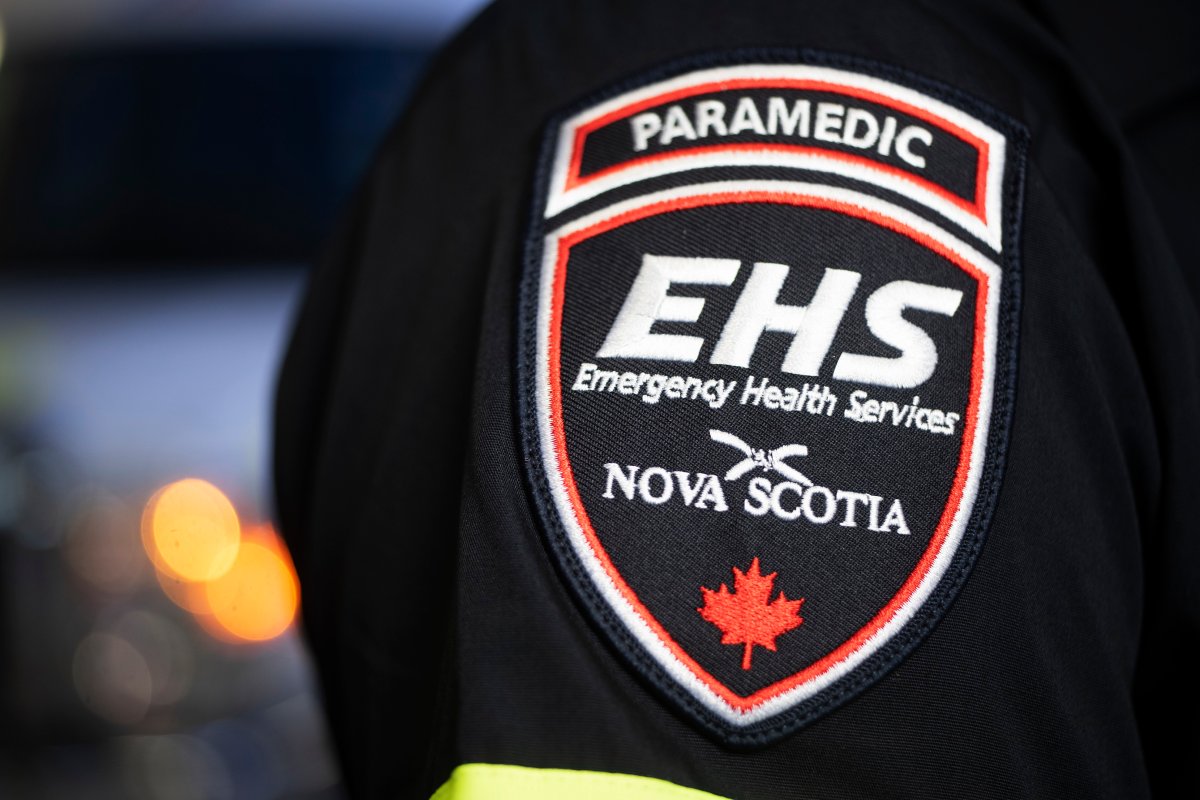EHS Operations in Nova Scotia acknowledged in a briefing on Thursday that ambulance response times and availability has been impacted by various factors, and the agency is now working on solutions to bring improvement.

Senior manager of provincial operations at EHS Operations, Phil Stewart, said at the briefing that ambulance availability is a “complex issue” that’s “influenced by a number of factors.”
Factors range from staffing complements to weather, impacts of ambulance availability to the health systems, offload delay and hospital closures, he said.
READ MORE: N.S. paramedics call for help after reporting more than 40 ‘Code Critical’ cases in five days
Stewart also noted that the COVID-19 pandemic and the restrictions around recruitment, travel and gathering limits have affected the EHS’s ability to bring in new paramedics.
To navigate this challenge, EHS is now aiming to get recruitment back to pre-COVID-19 levels, and as of now 20 new paramedics have been recruited.
“This is so dependent on the provincial public health guidelines that we monitor, and to be ready for the time when external travel, for recruitment and internal work can begin — we will begin that as soon as we possibly can,” said Stewart.
“The other factors are somewhat out of our control,” he added, such as hospital closures and offload delays in facilities throughout the province that don’t necessarily allow ambulances to get back on the street to be in their communities in a quick and timely manner.
“We can continue to work with our partners in the various facilities across the Nova Scotia health sector to enhance those partnerships and work to free ambulances up to come to the communities where they belong,” Stewart said.

The COVID-19 pandemic has also had an impact on the EHS Medical First Response (MFR) program, according to Charbel Daniel, the senior manager of System Support at EHS Operations, who’s responsible for the program.
The MFR serves to enhance pre-hospital patient care provided by the Emergency Health Services system in Nova Scotia.
The EHS says that “beyond the lifesaving instructions provided by the EHS Medical Communications Officer, a Medical First Responder is often the first physical contact that the patient has with an individual who can offer some form of medical assistance.”
“This is a program that allows fire agencies within the province to receive additional medical training, which in turn allows our communications center to notify them of medical calls that they can attend in the area and provide medical support under the oversight of the provincial medical director,” said Daniel.
READ MORE: Nova Scotia paramedics sounding alarm over ambulance wait times
During the onset of the pandemic last year, Daniel said that EHS in consultation with partners had made the decision “to restrict and modify the response model for the medical first responder program to only respond to motor vehicle collisions and difficult extrications.”
“This was a difficult decision, but it was made out of caution for responder safety in order to protect and minimize the potential exposure of not only our responders, but Nova Scotians as well,” he added.
But as of September 2020, EHS has began a “phased approach” to bring these agencies of the MFR back on board in an “efficient and safe manner” to serve communities.
The first phase, which looked at agencies with the highest volume of calls specifically for cardiac arrest, has been brought back online and has been completed in December 2020.

Phase 2 started this year and focuses on agencies that are furthest away from EHS ambulance stations. Daniel says this second phase will be completed in mid-April.
“This brings us into the final phase, which sees the remaining agencies brought online and completes the full program being reestablished to respond to cardiac arrest, along with motor vehicle collisions and difficult extrications,” said Daniel.
As EHS continue to do this, he said that if someone was to dial 9-1-1, paramedic crews and ambulances will still be responding regardless of the actual status of the EHS Medical First Responder program.
Phase 3 is set to be completed by the end of October, which will see approximately 122 of EHS’s agencies being on board.




Comments